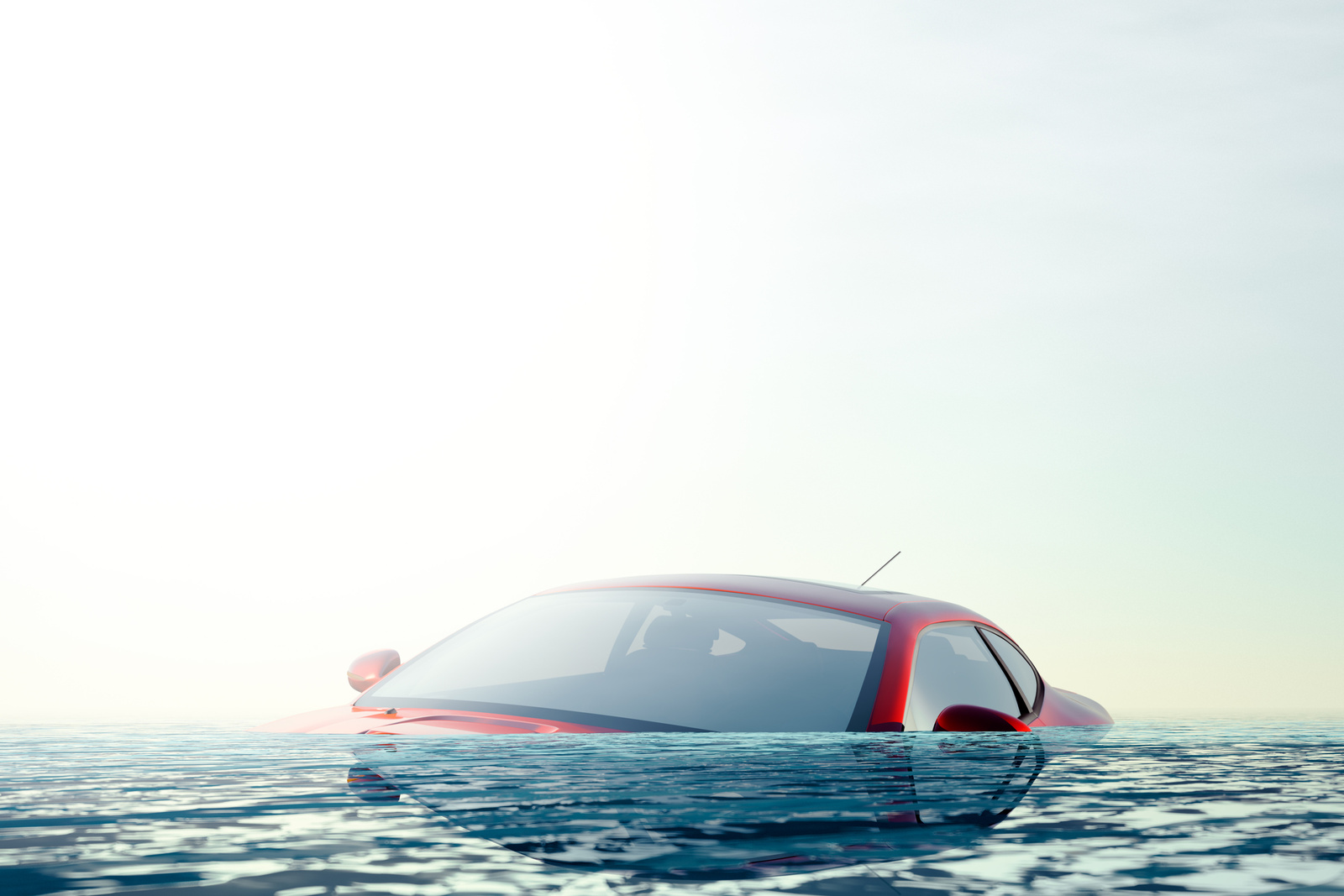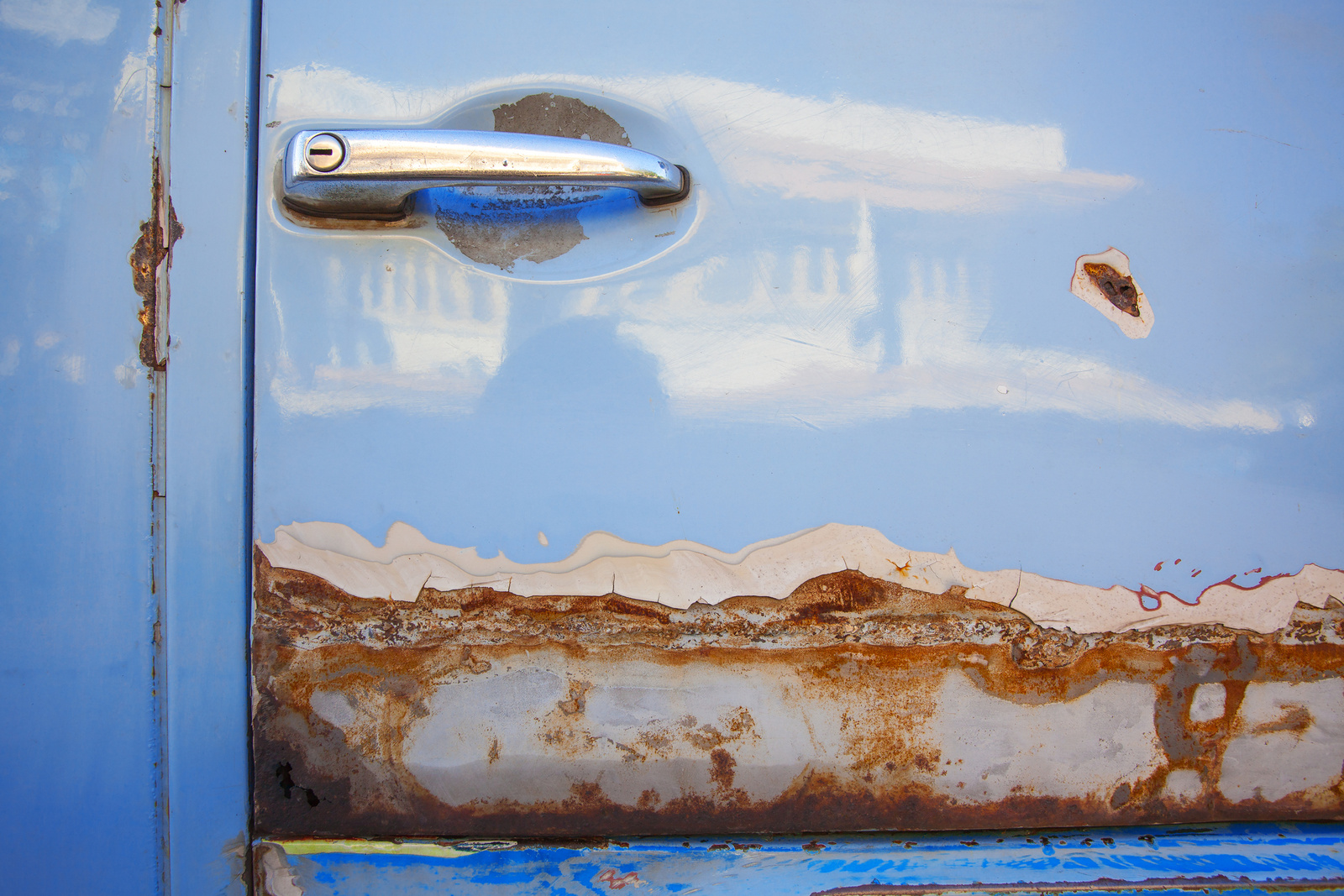Hurricane season: Walls of rain, massive flooding, extreme wind, and when all is said and done, upward of a half-million cars effectively ruined. Water damage from flooding, be it thanks to a hurricane or otherwise, can be terribly destructive to cars. But because flooding is generally widespread and the damage is relatively easy to hide (particularly when compared with fire or collision damage), hurricane season also tends to bring opportunists looking to sell damaged cars.
Who Sells Flood-Damaged Cars?

Now, to be sure, most flooded cars are written off as total losses by insurance companies and typically won’t be found for sale. Comprehensive insurance policies will typically cover flood damage on privately owned vehicles, so—assuming the vehicle is recorded as a total loss—an insurance company will pay the owner the car’s pre-flood value (minus a deductible of generally $500 or $1,000). This means the owner of an individual flooded car stands to make more money from their insurance payout than they would selling the car privately.
Dealerships also buy insurance policies to cover their inventory, and those insurance companies will inspect vehicles after a flood to determine whether they’re totaled.
When a car is totaled (or written-off), it’s given a salvage title and typically sent to either a salvage yard or an auction by the insurance company. Many of the vehicles will be scrapped, but some may be put up for sale, and those are the cars people in flood-ravaged areas should be wary of when shopping. To further complicate matters, some sellers may re-title vehicles in a new state, which can effectively hide the car’s questionable history.
How To Identify Flood Damage

Water damage is both seen and unseen. Destroyed interiors, moldy upholstery, and shorted electrical displays will alert even the most lackadaisical shopper of a flooded car. But the smell of mildew and corroded electrical systems may not be as noticeable. If you see water markings on any exposed metal, either under the hood or in the trunk, on door hinges, or even the springs under the front seats, they might be a sign of water damage. If the seller has hung an air-freshener in the car, toss it out. If you smell a musty, mildewy scent inside the car, chances are it has sat in floodwater.
You can find out whether a car has a salvage title by checking its vehicle history report. Companies like CarFax and Experian’s AutoCheck collect data from Departments of Motor Vehicles, insurance providers, auto recyclers, and junk and salvage yards, but even these valuable reports have their limitations. Namely, vehicle history reports take time to update. Flood damage is more likely to be reported than a cosmetic defect, because a vehicle owner stands to gain more from a flooded car’s insurance payout, but there will still be a substantial delay between when the salvage title is applied and when it finally appears on a vehicle history report.
Opportunists may try to sell a flood-damaged car before the report has been updated. So, in addition to a vehicle history report, shoppers should also invest in a pre-purchase inspection, handled by an independent mechanic.
What If It’s a Great Deal?
Sellers will be extra motivated to move flood-damaged cars, especially if they’re trying to offload them before the damage shows up on a vehicle history report. Attractive prices can make flood-damaged cars look like a good deal at first blush, and they may be appealing to courageous DIY-ers, but the typical shopper should stay away from any car that has been marked as a flood-damaged vehicle. The bottom line is that these cars often have a wide variety of issues, many of which can last for years, if not for the entire remaining life of the car.
Simply put, there’s no such thing as a “great deal” when talking about flooded cars with salvage titles. Our Used Car search includes a filter to eliminate salvage-titled listings, but the time delay between when a salvage title is applied and when it is reflected on a vehicle history report makes flood damage easy to hide on paper. Luckily, any experienced mechanic will be able to identify extensive water damage.
Related Topics
How To Buy a Car Sight Unseen
What to Look For When Buying a Used Car
What Do I Do with My Totaled Car?
